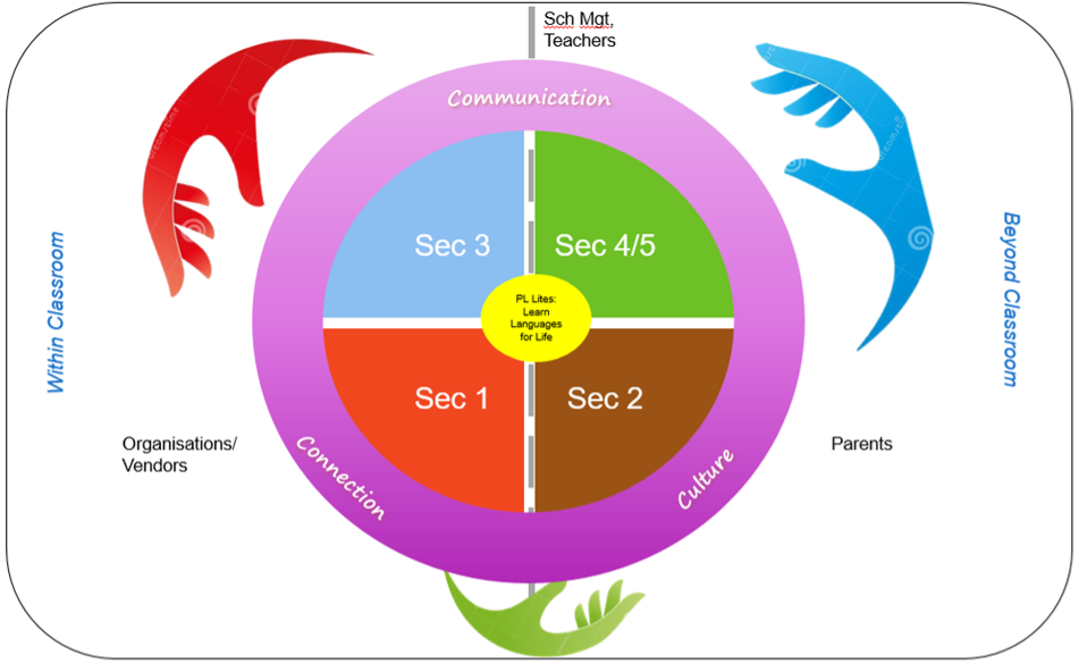Mother Tongue Language
Vision / Mission
To cultivate confident communicators in the Mother Tongue Languages who demonstrate a strong passion for and appreciation of their cultural values and heritage.
Curriculum
PL Bilingualism Framework
The PL Bilingualism Programme is a two-pronged, school-wide initiative anchored in the Mother Tongue Language (MTL) Curriculum. It is a collaborative effort involving School Management, Teachers, Parents, Community Organisations, and Vendors, all working together to nurture PL-Lites as confident bilinguals.
Aligned with the overarching goals of MTL education, the programme supports students in Learning Languages for Life over their 4 to 5 years at PL. It is built upon the three broad objectives of MTL education:
-
Communication – Building proficiency in the use of the Mother Tongue Languages in daily and real-world contexts
-
Culture – Developing appreciation and understanding of cultural values and heritage
-
Connection – Strengthening personal and communal identity through meaningful engagement with language and culture
These objectives underpin the 2021 Secondary MTL Curriculum, shaping its Content (Language Skills, Language Knowledge, Cultural Values), Pedagogical Approaches, and Assessment Practices. The PL Bilingualism Programme thus serves as a comprehensive platform to equip students with both linguistic competence and cultural rootedness.

Subjects offered
PL offers the following Mother Languages at G1, G2 & G3 levels:
-
Chinese
-
Malay
-
Tamil
-
Higher Chinese
-
Higher Malay
-
Higher Tamil
Our Assessment Approach
Our department’s assessment framework is designed to progressively develop and strengthen students’ key language skills across the year. Each term focuses on a specific aspect of language learning to ensure a balanced and comprehensive acquisition of skills.
-
Term 1: Oracy Presentation
Focuses on enhancing students’ speaking and presentation skills through structured oral tasks. -
Term 2: Reading Comprehension
Develops critical reading and analytical skills through exposure to a variety of texts and question types. -
Term 3: Writing Practice
Builds students’ ability to write with clarity and coherence across various formats—narrative, expository, and practical writing. -
Term 4: Year-End Examination
Assesses overall language proficiency and consolidates learning outcomes across all key skill areas.

